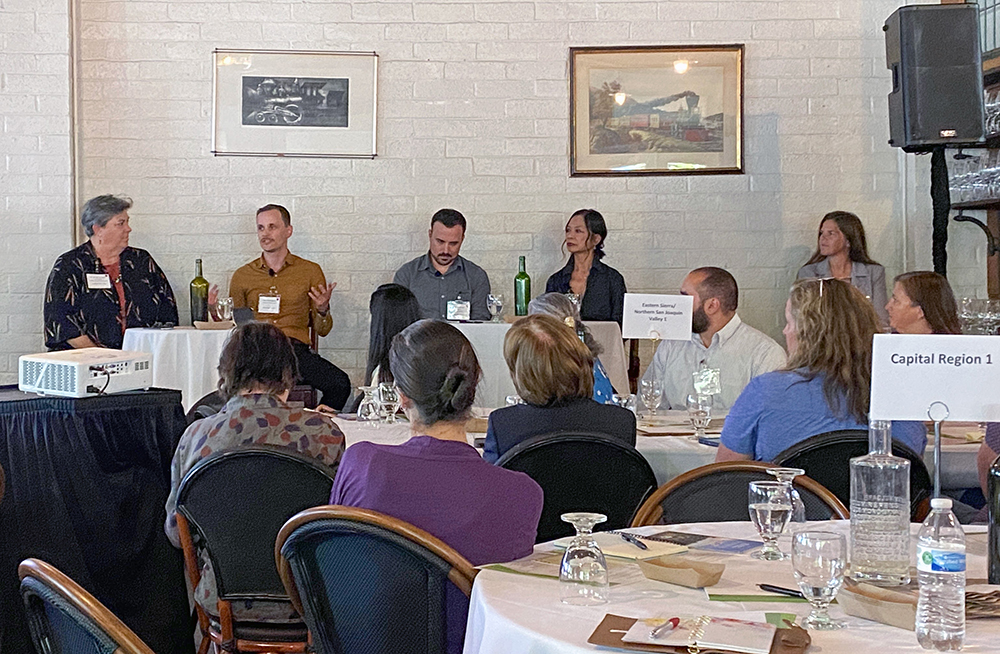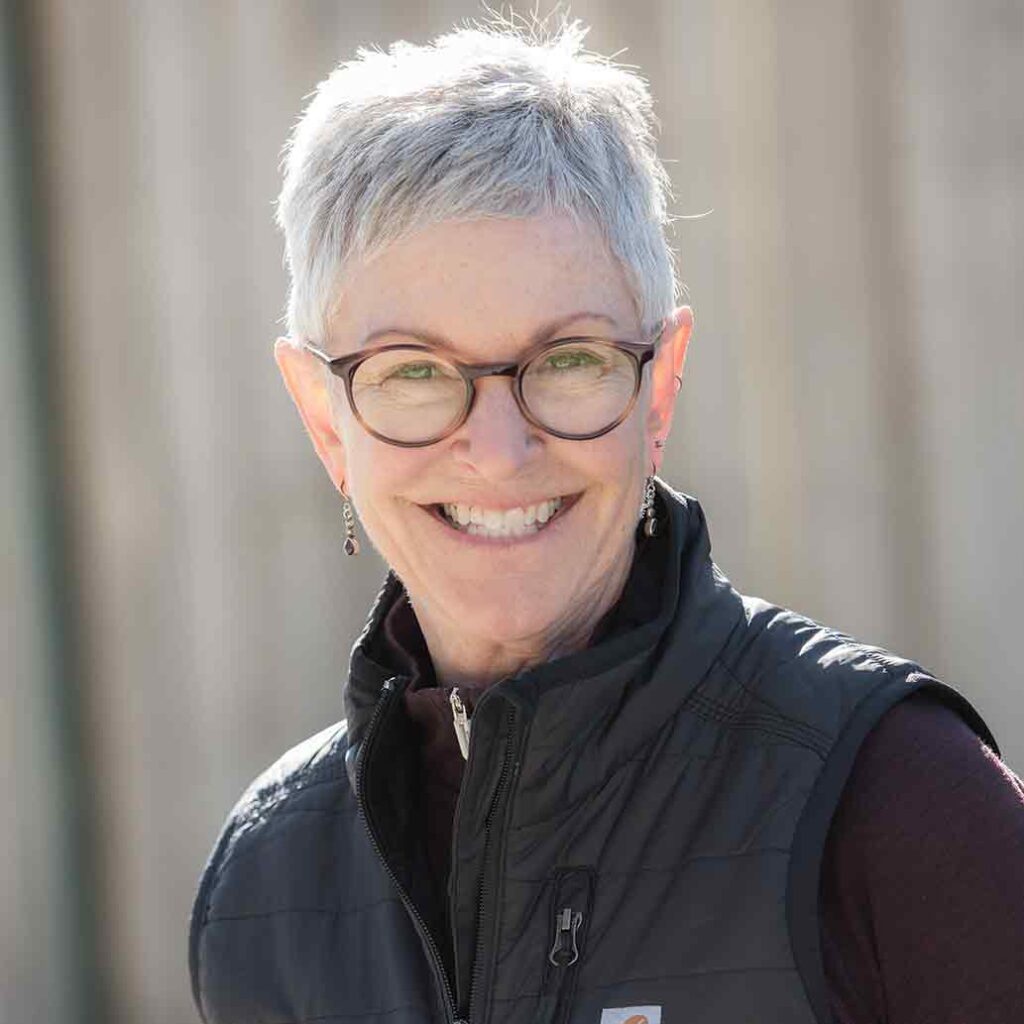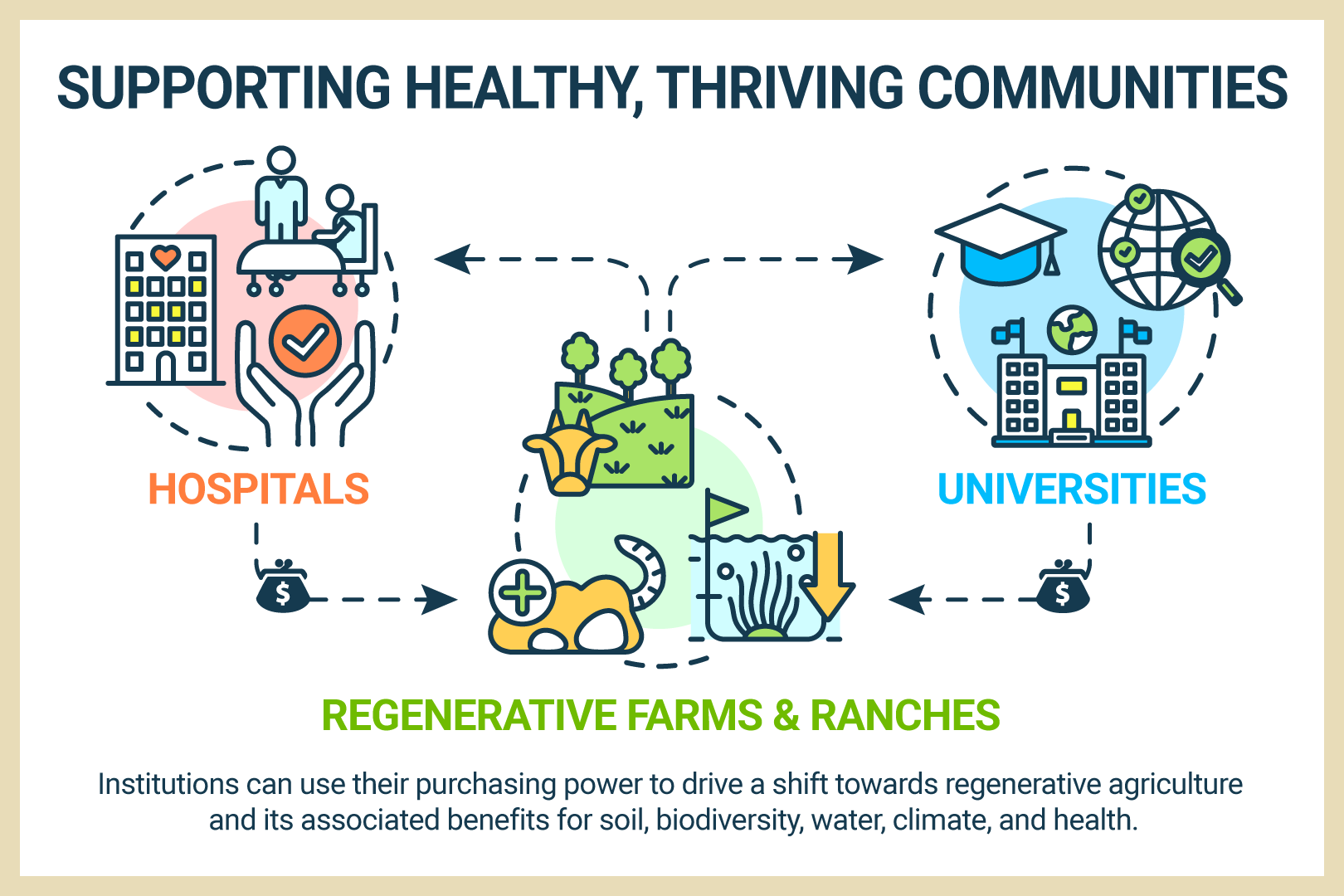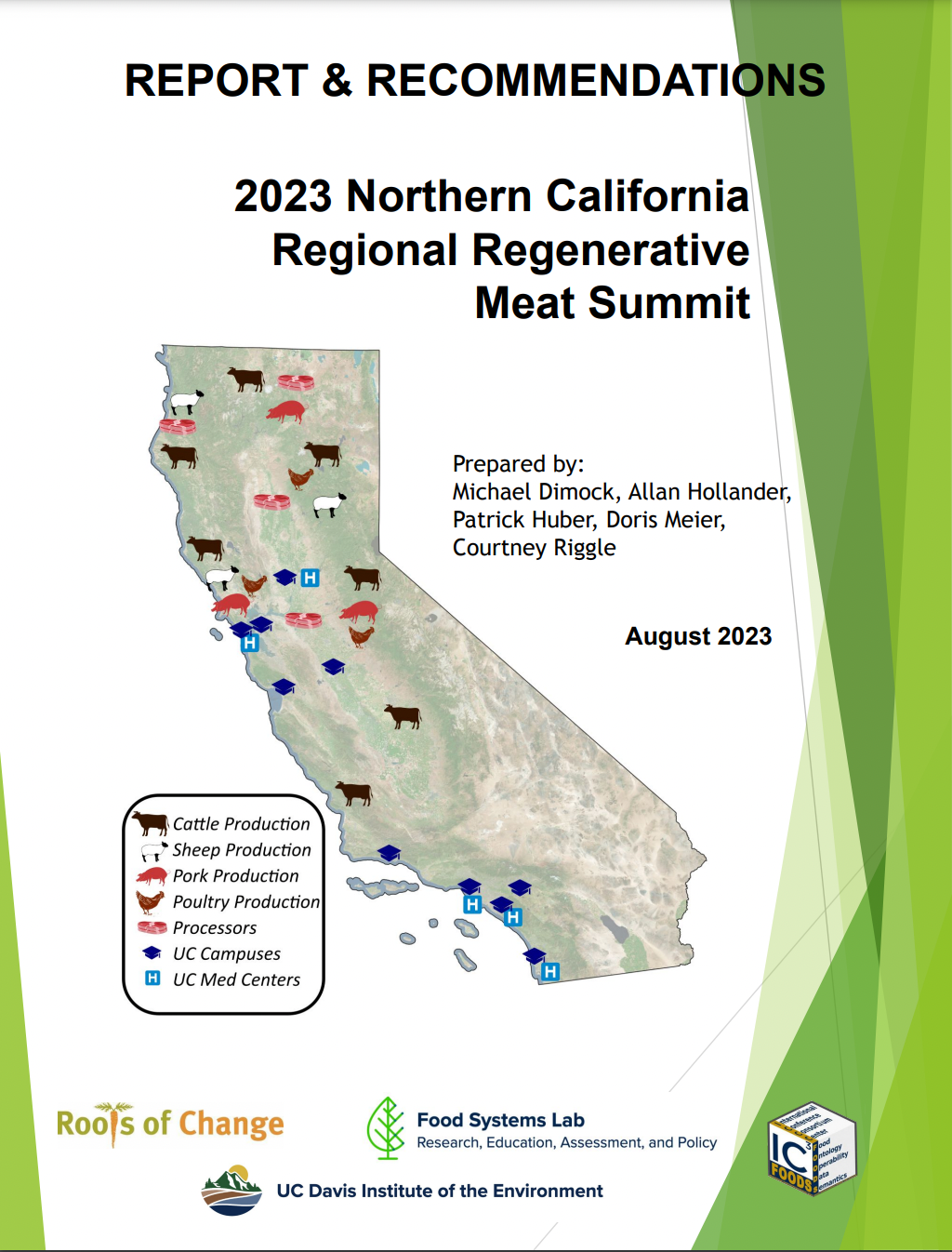This past June, over 110 participants, including staff from TomKat Ranch, converged in Sacramento for a Regional Regenerative Meat Summit and dinner held at Mulvaney’s B&L restaurant.
Shifting Paradigms: The UC System and the First Regional Regenerative Meat Summit

Panel 2: UC System, UC Student & Meat Producer Goals with Dr. Glenda Humiston (Vice President of UCANR), Mark Biedlingmaier (Food, Labor, Procurement Graduate Student Fellow), Conner Hacket (Ferndale Farms), Marilyn Biscotti (Strategic Sourcing UC)
08/23/2023
By: Kathy Webster
 This past June, over 110 participants, including staff from TomKat Ranch, converged in Sacramento for a Regional Regenerative Meat Summit and dinner held at Mulvaney’s B&L restaurant. This event was a collaboration between Roots of Change, UC Davis Food Systems Lab, IC-FOODS, CreamCo Meats, and Chefs Patrick Mulvaney and Santana Diaz. It was made possible through a grant from the USDA’s Agricultural Marketing Service to enhance supply chain resilience in the face of climate instability while simultaneously revitalizing rural economies.
This past June, over 110 participants, including staff from TomKat Ranch, converged in Sacramento for a Regional Regenerative Meat Summit and dinner held at Mulvaney’s B&L restaurant. This event was a collaboration between Roots of Change, UC Davis Food Systems Lab, IC-FOODS, CreamCo Meats, and Chefs Patrick Mulvaney and Santana Diaz. It was made possible through a grant from the USDA’s Agricultural Marketing Service to enhance supply chain resilience in the face of climate instability while simultaneously revitalizing rural economies.
The primary aim of the summit was to foster alliances among key stakeholders striving to integrate local meat from small and mid-scale producers into the University of California supply chain. Joining the buying power of local institutions with local beef producers is a mission near and dear to our heart through our work with Beef2Insitution.
The meeting commenced with two insightful panel sessions. The first focused on Working Lands and Rural Economies, while the second delved into the University of California’s procurement objectives. Attendees were thoughtfully seated at tables representing different regions in Northern California, with a cross-section of ranchers, processors, investors, buyers, and advisors. This arrangement set the stage for productive conversations about critical questions and challenges related to animal aggregation and transportation, accessible processing facilities, and clear definitions of regions and regenerative practices.
With ten campuses and five medical centers serving an average of 600,000 meals daily during the academic year, the UC System holds considerable influence. This and other institutions can use their purchasing power to drive a shift towards regenerative agriculture and its associated benefits for soil, biodiversity, water, climate, and health of the students and patients it serves.
Click here to read the project team’s summary report with recommendations and next steps.

